Location: Salia Sahi Slum, Bhubaneswar, Odisha
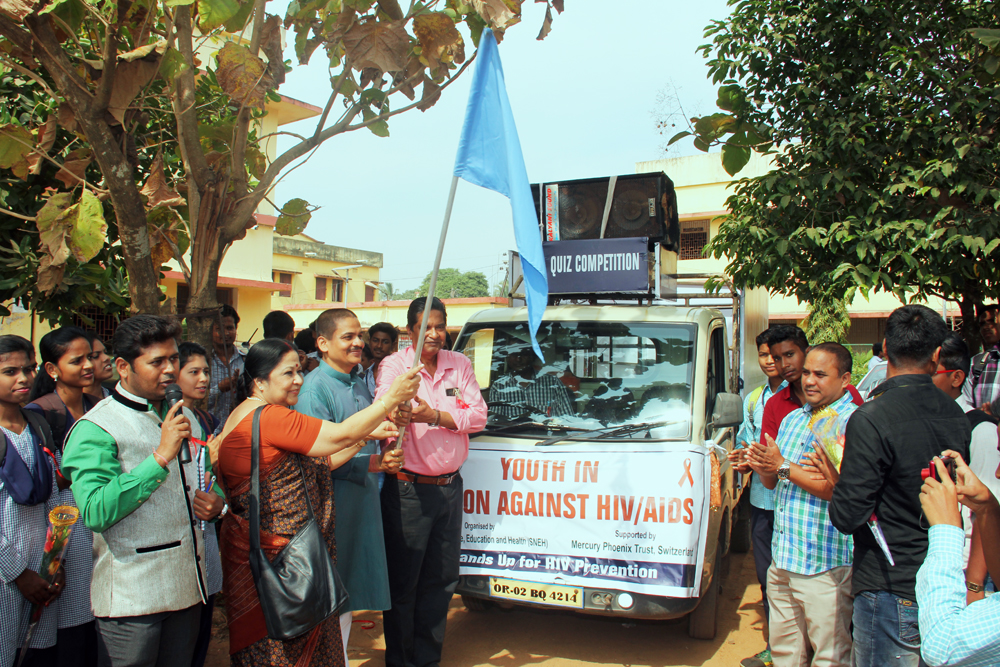 SNEH has been working on an impactful and inclusive HIV/AIDS prevention and control programme since 1995. The first few STD clinics were set up in JKPur and Rayagada, but now SNEH has shifted its HIV/AIDS intervention entirely to Salia Sahi slum in Bhubaneswar, one of the most congested and underserved pockets of the Odisha capital.
SNEH has been working on an impactful and inclusive HIV/AIDS prevention and control programme since 1995. The first few STD clinics were set up in JKPur and Rayagada, but now SNEH has shifted its HIV/AIDS intervention entirely to Salia Sahi slum in Bhubaneswar, one of the most congested and underserved pockets of the Odisha capital.
SNEH’s direct intervention includes one-on-one or group counseling, awareness programs, public rallies, street plays, group-education programs, quiz competitions, sports events, condom distribution – all with an eye to creating an enabling environment that will foster an attitude and behavior change in the slum communities.
The main objectives of SNEH’s flagship ‘Youth in Action Against HIV/AIDS’ program has been to increase public awareness about STDs/HIV/AIDS among the youth, as well as the older slum inhabitants. Engaging the youth is essential to the project’s success: It accords them a sense of ownership and, as future leaders, gives them a voice in decisions that will impact their lives.
The Salia Sahi youngsters’ energy and outlook has been an essential resource in the expansion of the HIV/AIDS project. Sports, music, theatre and workshops have been an innovative and creative means to reach the message to a critical target group that has been feeling a disconnect with the primary issues of sexual health and hygiene. Also, prevalent gender inequity has kept girls out of the mainstream when it comes to education and training programs, leaving them at greater risk to violence and STDs.
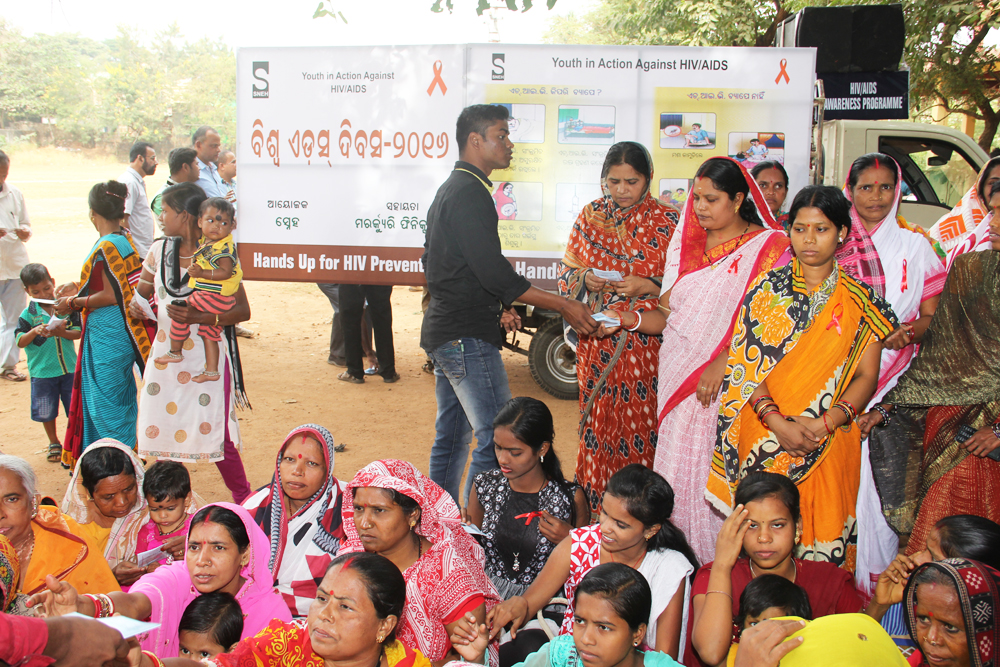 The great mismatch between job opportunities and skills training (backed by relevant education), has led to fewer employment and entrepreneurship prospects, especially in the slums. And finally, parental care, peer approval and support from the wider community can be strong influences to help the slum youth stay away from substance abuse, alcoholism, violence, suicide and of course unsafe sexual behaviour. Having someone to confide in and count on during a crisis; someone to give advice and care can be of tremendous help.
The great mismatch between job opportunities and skills training (backed by relevant education), has led to fewer employment and entrepreneurship prospects, especially in the slums. And finally, parental care, peer approval and support from the wider community can be strong influences to help the slum youth stay away from substance abuse, alcoholism, violence, suicide and of course unsafe sexual behaviour. Having someone to confide in and count on during a crisis; someone to give advice and care can be of tremendous help.
SNEH’s staff at the local Sampriti Resource Center, and the Youth Cells in Salia Sahi, fulfil this role excellently. These are venues for programs, meetings, knowledge-sharing, community dialogue or just a place for the youngsters to get together. A Youth Cell for the adolescent girls and young women of the slum has also been set up, and is managed by a trained psychologist who provides counseling and moral support to victims of gender and domestic violence. The cell is used for training programs, workshops for the stakeholders, and also has space (and privacy) for inter-personal counseling. Different training programs on reproductive health rights, gender and peacebuilding and motivation and aspiration, are conducted at the center. Among the special events held here are International Women’s Day and World AIDS Day commemorations; and football and kabaddi tournaments for adolescent girls. ‘Freddie for A Day’—a musical event spreading awareness on the life and achievements of rock star Freddie Mercury, is organized every year on September 5.

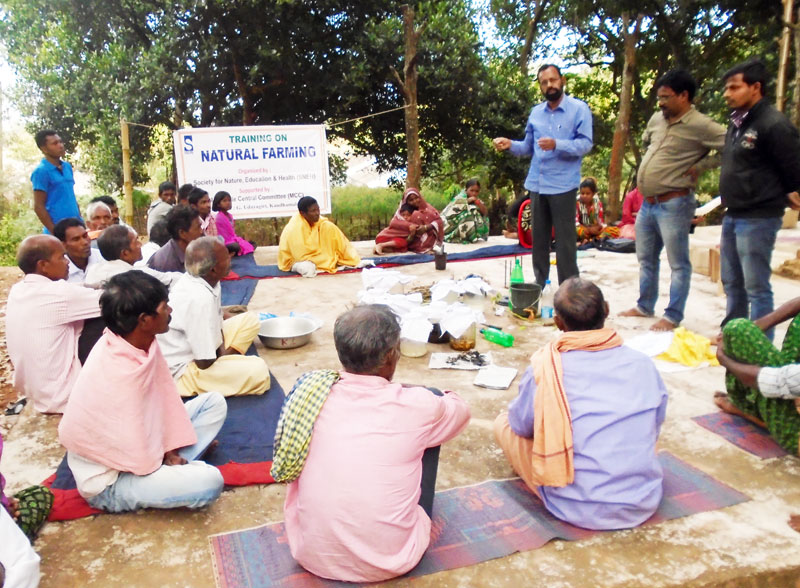 SNEH began its peace-building intervention in the G. Udayagiri Block of Kandhamal district in Odisha, in the immediate aftermath of horrifying communal conflicts in 2008. Initiatives on conflict resolution and restoration of communal harmony and peace were undertaken in the beginning. Later, endemic issues like malnutrition, health, hygiene and sanitation, and livelihood strengthening activities were also included in the intervention.
SNEH began its peace-building intervention in the G. Udayagiri Block of Kandhamal district in Odisha, in the immediate aftermath of horrifying communal conflicts in 2008. Initiatives on conflict resolution and restoration of communal harmony and peace were undertaken in the beginning. Later, endemic issues like malnutrition, health, hygiene and sanitation, and livelihood strengthening activities were also included in the intervention.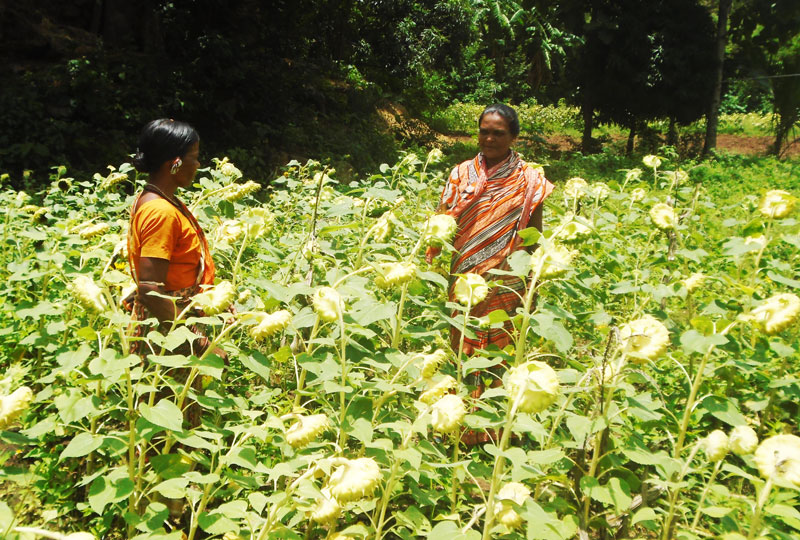 SNEH has introduced modern farming practices through popularisation of SRI (System of Rice Intensification) and row transplantation of paddy. Farmers have been trained in ‘natural farming’ through the use of Indigenous Micro Organisms (IMO) prepared by using locally-sourced materials. This new technology has also contributed to improve the health and nutrition of the local people.
SNEH has introduced modern farming practices through popularisation of SRI (System of Rice Intensification) and row transplantation of paddy. Farmers have been trained in ‘natural farming’ through the use of Indigenous Micro Organisms (IMO) prepared by using locally-sourced materials. This new technology has also contributed to improve the health and nutrition of the local people.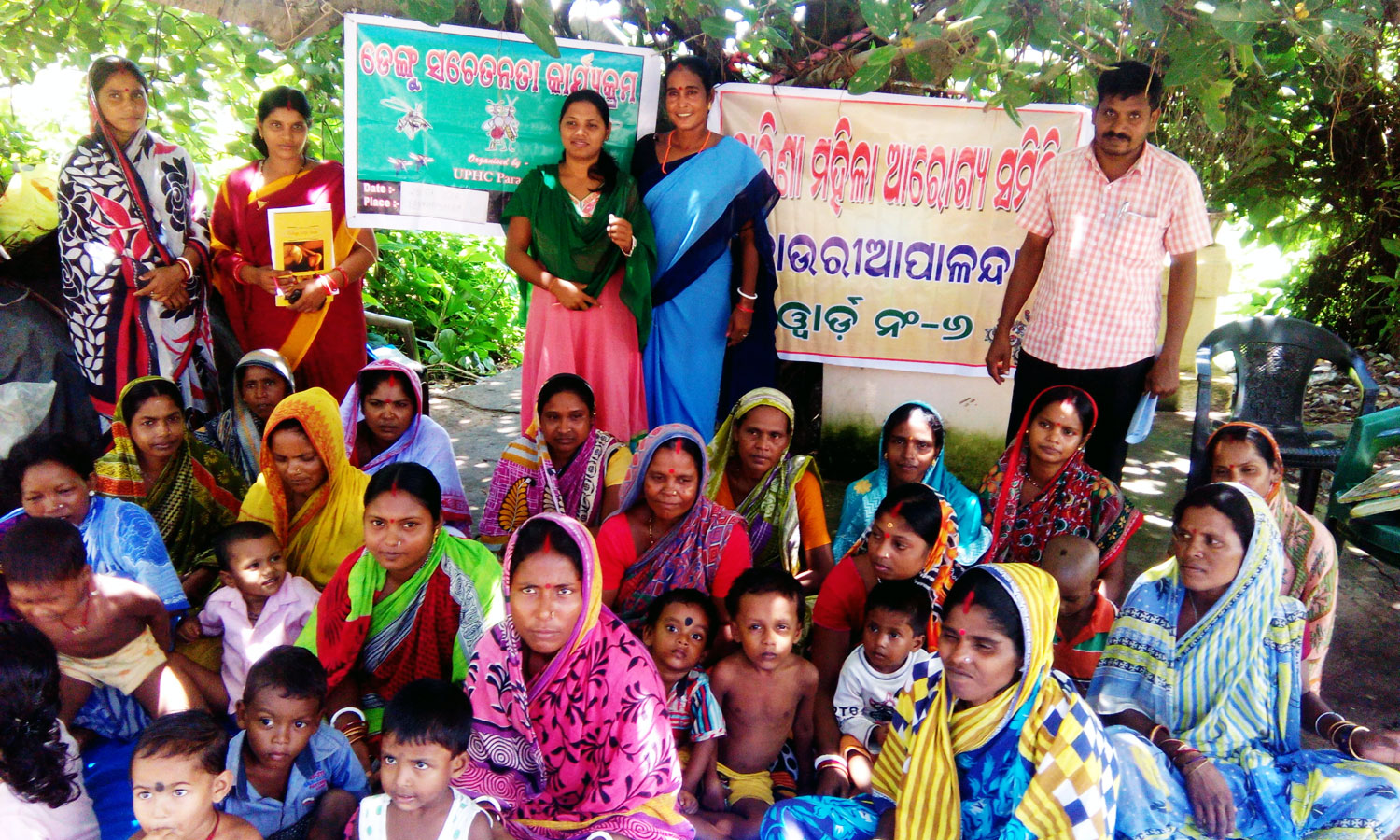
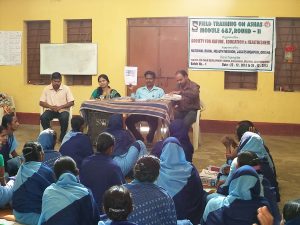
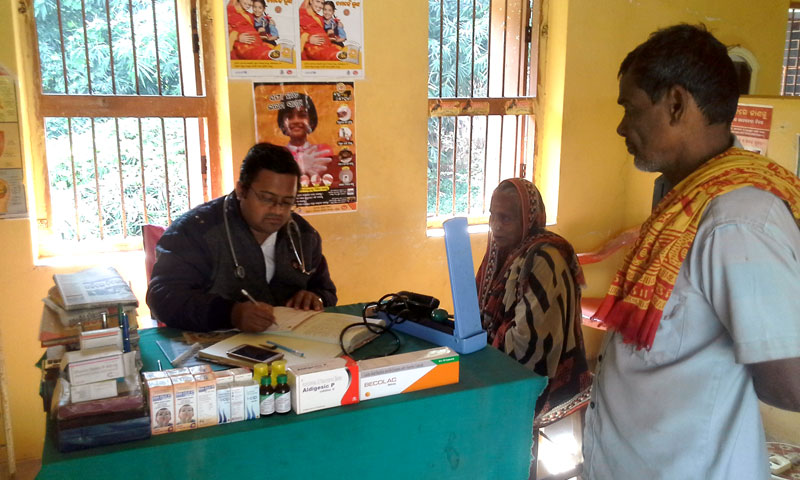 Following the devastation of Odisha by the super-cyclone of 1999, SNEH set up a Health Clinic in Kanjiakana village of Jagatsinghpur district, the area that was the worst-hit. The clinic provides free healthcare services, including medication and support for critical ailments, and is manned by a doctor, a pharmacist and a trained woman health worker. SNEH has also extended healthcare services through its trained health workers and TBAs, to support the government health drives on HIV/AIDS, Pulse Polio, Hepatitis-B and other programs. SNEH’s on-ground staff have been sensitizing and conducting outreach programs in the local villages on health, hygiene, sanitation and nutrition.
Following the devastation of Odisha by the super-cyclone of 1999, SNEH set up a Health Clinic in Kanjiakana village of Jagatsinghpur district, the area that was the worst-hit. The clinic provides free healthcare services, including medication and support for critical ailments, and is manned by a doctor, a pharmacist and a trained woman health worker. SNEH has also extended healthcare services through its trained health workers and TBAs, to support the government health drives on HIV/AIDS, Pulse Polio, Hepatitis-B and other programs. SNEH’s on-ground staff have been sensitizing and conducting outreach programs in the local villages on health, hygiene, sanitation and nutrition.